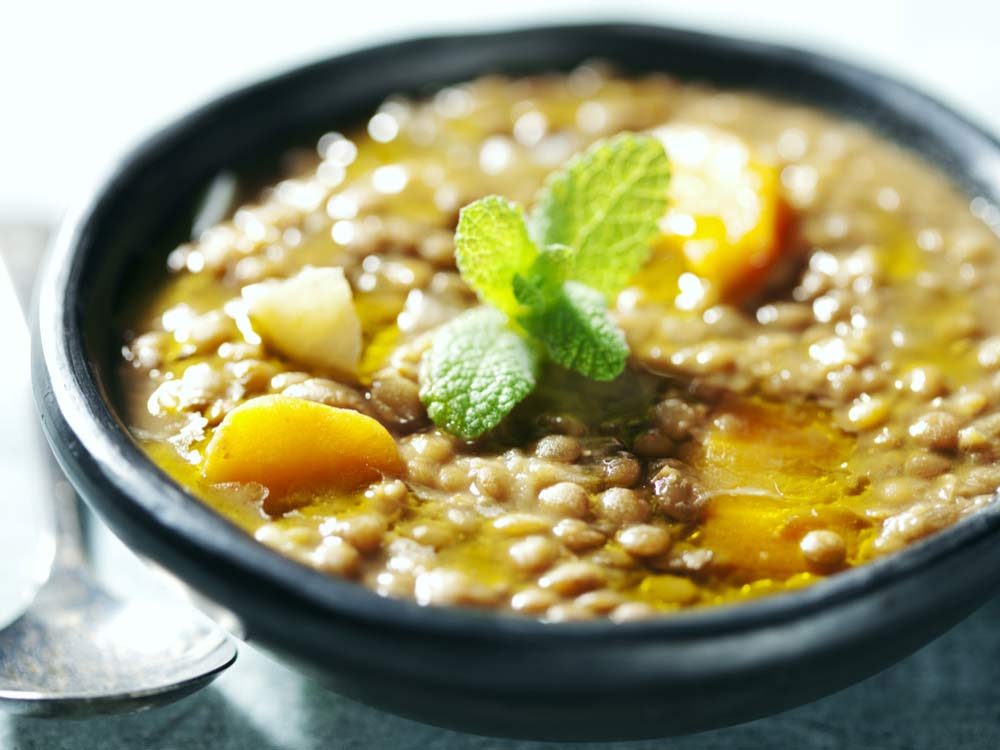
The best thing to eat when you have a headache
Eat Moroccan lentil soup made with spices like turmeric and cinnamon. “This meal is free of potential headache triggers like dairy, cured meat, nuts, and chocolate. Plus, it also doesn’t require chewing, which can aggravate a headache,” says Cynthia Sass, RD, author of Slim Down Now: Shed Pounds and Inches With Pulses—The New Superfood. The soup also delivers a good dose of protein, anti-inflammatory spices, and magnesium—which helps relax blood vessels to ease headaches.

When you have sinus pressure
Eat: anything spicy—the capsaicin in chili peppers can help clear up types of sinus inflammation, according to research published in Current Allergy and Asthma Reports.
Brush up on more healing herbs and spices.

When you have a sore throat
Eat: A soup made with a hot, thin broth (either vegetable- or chicken-stock base), with garlic, herbs, and vegetables; plus hot green tea with honey. For starters, both hot liquids will help drain congestion, Sass explains. “The garlic is anti-inflammatory and immune-supporting, the veggies provide nutrients for healing, and honey has been shown to help ease the pain from a sore throat,” she adds. Sore throat gargles are another trick to feel better.
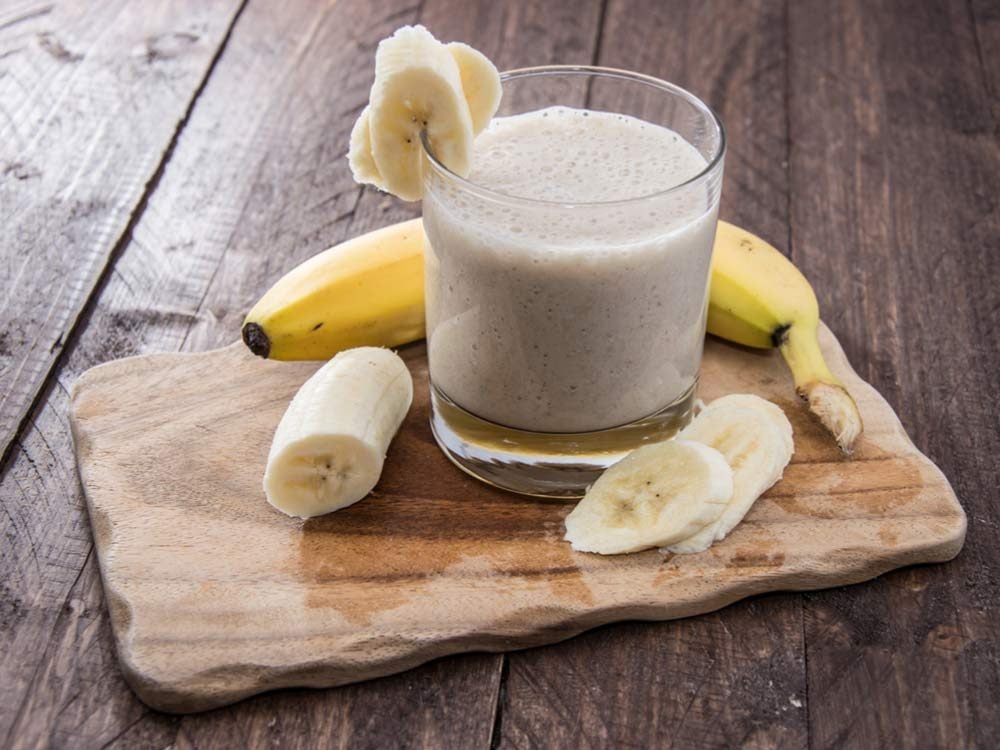
When you have nausea
Eat: bananas, steamed brown rice, apple sauce, and ginger tea, Sass suggests. Each of these foods is easy to keep down and tends to soothe the digestive system. Opt for tea bags with real ginger in it, or better yet, steep some of the herb fresh in hot water. A University of Rochester study found that as little as a quarter of a teaspoon of ginger cut nausea by 40 per cent in queasy chemotherapy patients.
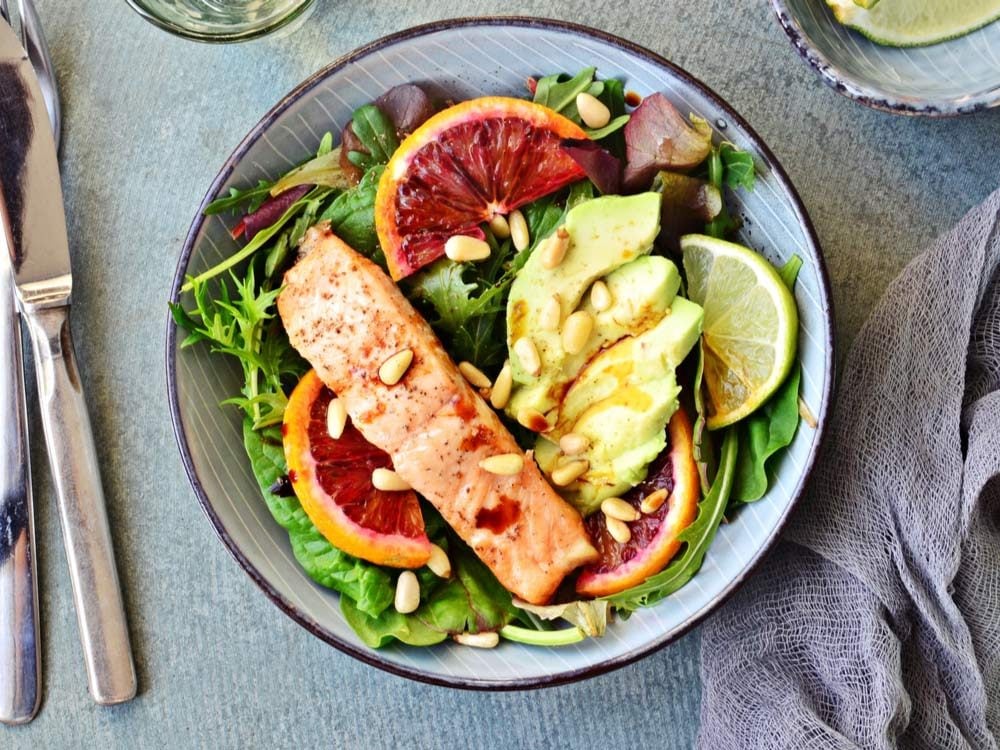
When you have fatigue
Eat: There isn’t a one-size-fits-all remedy for this one since the fix largely depends on the cause of fatigue. Your best bet? A leafy green salad topped with chopped vegetables and grilled salmon to give a boost of vitamins, minerals, and omega 3s, which will, in turn, increase your energy. (This easy chart shows which fish have the most omega 3s.) Be sure to hydrate, since dehydration alone is enough to slow your energy down, says Emily Littlefield, nutritionist and health coach in Santa Barbara, California. (Check out these sneaky ways you’re making yourself dehydrated.) If the fatigue is from a lack of sleep, avoid caffeine. “It may seem counterintuitive, but the temporary Band-Aid of coffee or an energy drink will only provide a brief false sense of energy, usually followed by even more intense fatigue, then trouble sleeping, which perpetuates the cycle,” Sass explains.
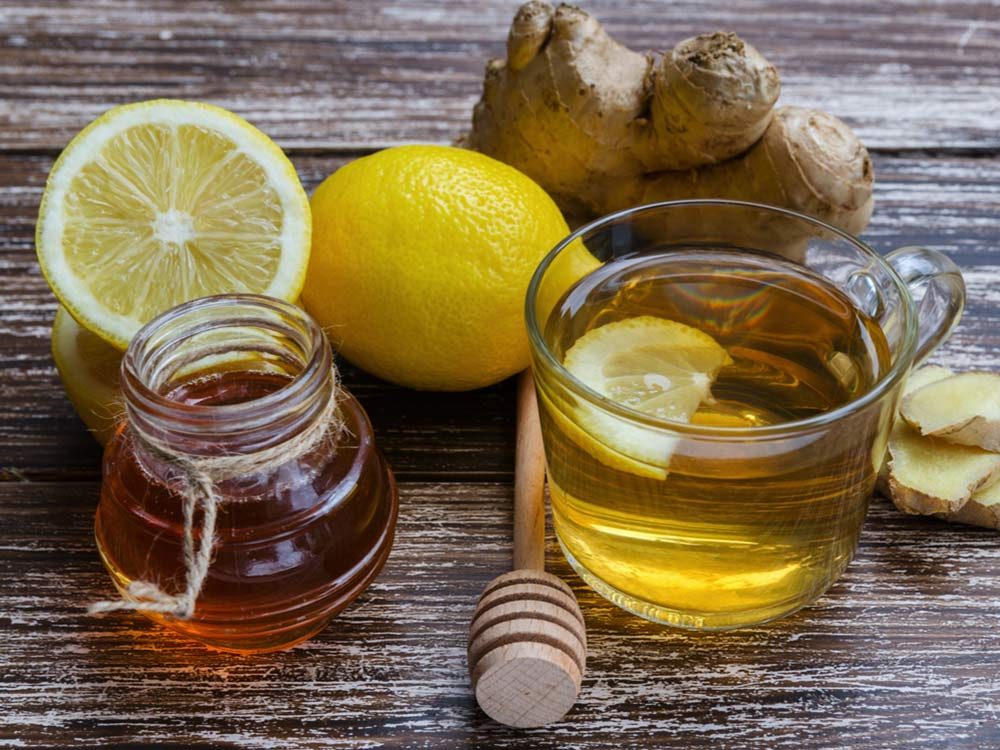
When you have menstrual cramps
Drink: a pot of hot ginger tea with a little honey and lemon. “Ginger root is soothing and calming and has been used for healing stomach pain for centuries,” says Littlefield. (Here are the stomach pains you should never ignore.) A study in the Journal of Alternative and Complementary Medicine found that ginger was just as effective in relieving menstrual cramp pain as ibuprofen (whoa!). Plus, proper hydration can help reduce tension in certain muscles that contribute to menstrual cramping.
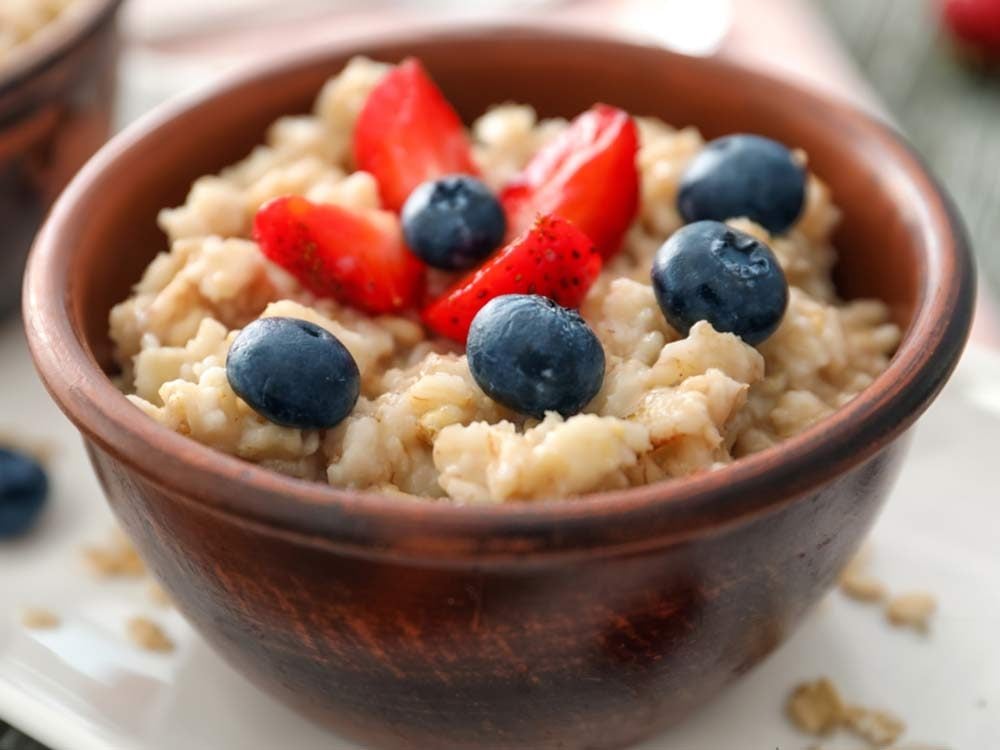
When you have constipation
Eat: oatmeal topped with fibre-rich fruit and a mug of hot water with lemon. The goal here is to get your stool moving. “The fibre from the oats and fruit helps to soften stool,” Sass explains. “The drink will help stimulate your digestive muscles to contract and move waste through.”
Read up on more health benefits of oatmeal.
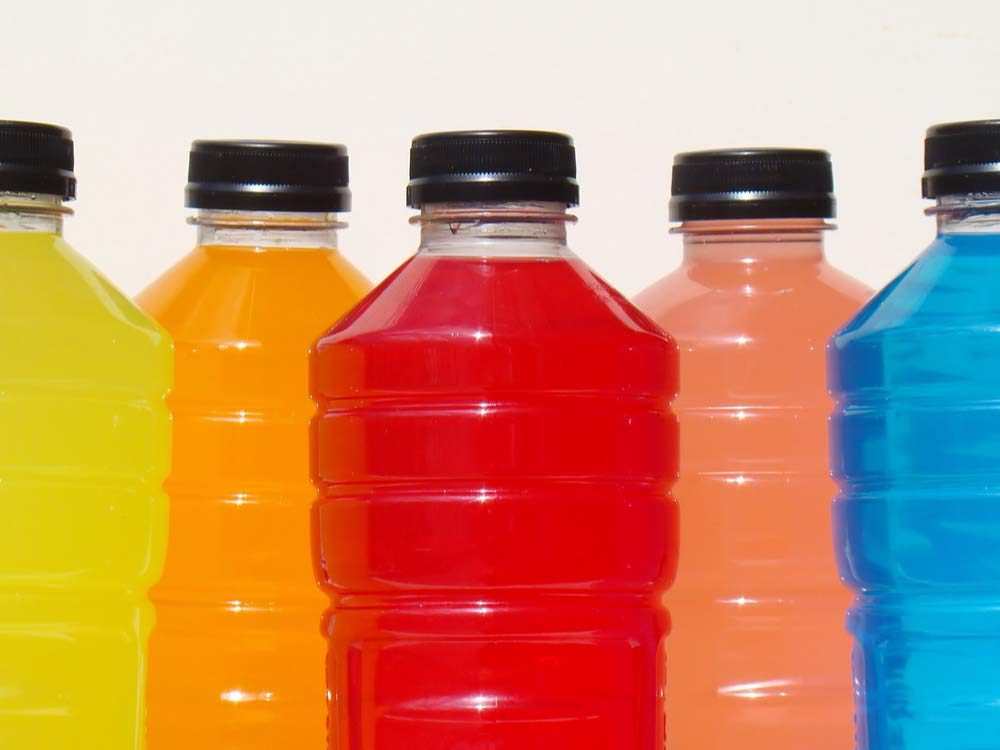
When you have diarrhea
Drink: a sports drink or Pedialyte, to start, Sass suggests. “The top goal is replacing fluids and electrolytes while diarrhea is active,” she says. Once it stops, continue to rehydrate, but start eating foods that are easy to digest, like bananas and brown rice. If you eat your usual fare, it can overstimulate digestive muscles or trigger unwanted inflammation or irritation, she adds.
Find out 10 easy ways to improve gut health.

When you have brain fog
Eat: two eggs any style; a whole-grain, low-sugar waffle, and cup of black coffee. (Here’s how to make your coffee habit healthier.) Countless studies have found that caffeine improves both alertness and attention. Between eggs and the waffle, you’ll score the perfect balance of fat, protein, and healthy carbohydrates to help avoid blood sugar dips that make you feel foggy.
These 10 brain-boosting breakfast recipes will start your day right.
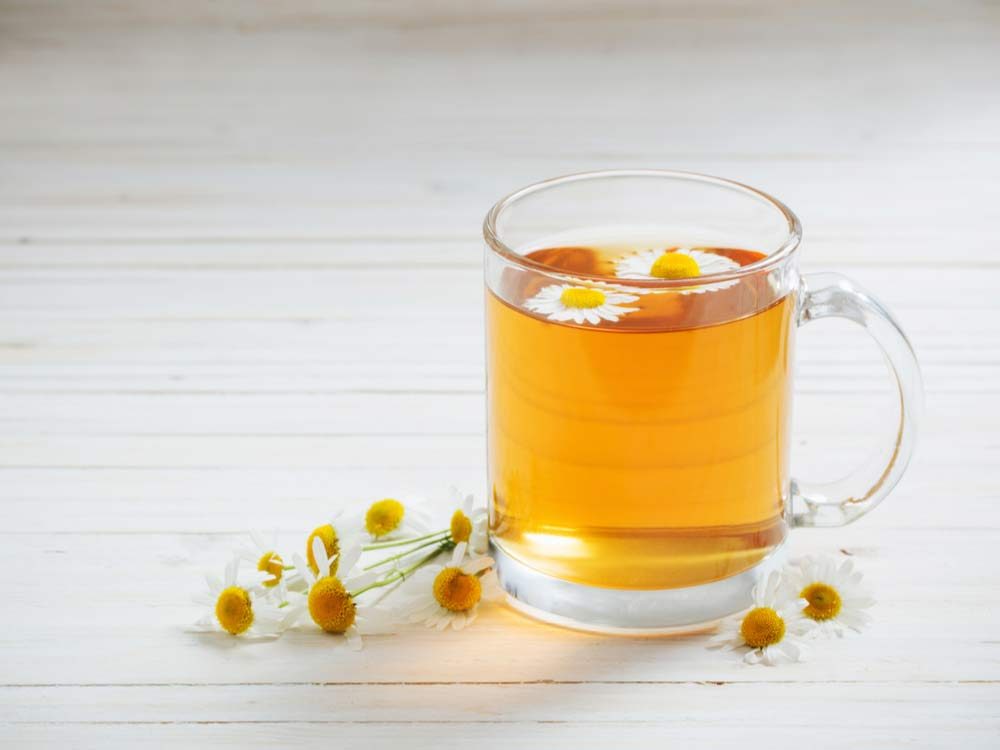
When you have stress
Drink: a combo of chamomile and mint herbal teas. Refill indefinitely until you feel the hot drink calm your nervous system. Avoid anything high in fats or in sugar, which a study in the journal Psychoneuroendocrinology found can exacerbate other health problems that accompany stress, such as oxidative damage and the accumulation of abdominal fat, which can make you feel even worse than you already do.
Now that you know the best foods to eat when you’re sick, find out more old-time home remedies that really work.